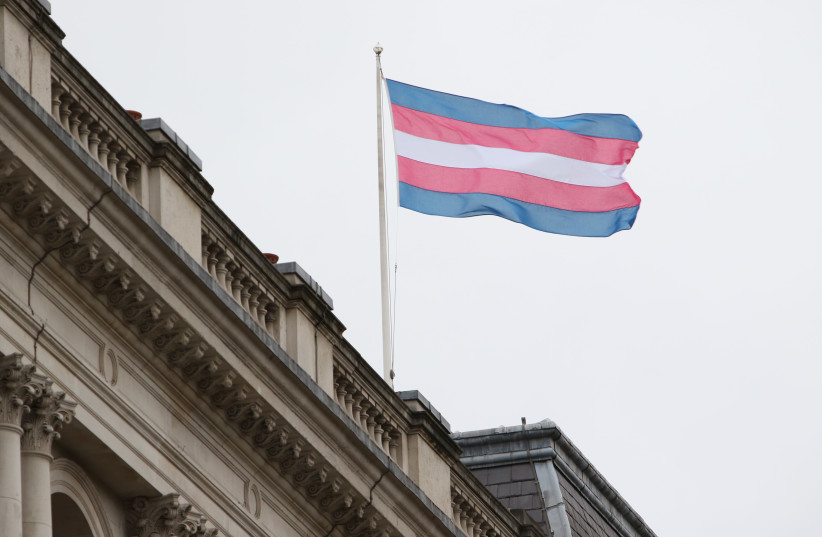My six-month-old grandson doesn’t know what sex is. Heck, he doesn’t know what food tastes like or what walking, crawling or even sitting up entails.
Would you say he has the cognitive capabilities to give up on any of those future abilities – for the rest of his life?
No, of course you wouldn’t. These types of major decisions should be made only by someone who has already experienced them firsthand and knows what he or she’s forsaking.
So why are medical experts encouraging young children to embark on massively disruptive procedures that could prevent them from enjoying some of the greatest pleasures of living?
I’m talking about prescribing puberty blockers and other meds that prep preteens for a transition from one gender identity to another. However, new research reveals a shocking side effect: Gender dysphoric kids who take puberty blockers – which are meant to delay or entirely block the normal development of secondary sexual characteristics – may never be able to have an orgasm.

Dr. Marci Bowers, a vaginoplasty surgeon who herself transitioned when she was 38, spoke recently at a virtual conference hosted by Duke University. “Every single child or adolescent who was truly blocked at Tanner Stage 2 [when hormones begin their work of advancing a child to adulthood] has never experienced orgasm. I mean, it’s really about zero.”
The problem is most acute for boys, where going on blockers means the adolescent won’t generate enough, if any, testosterone. As a result, the boy’s genitals won’t develop to maturity, leading to a “lack of skin for creating a female vulva” if vaginoplasty is eventually chosen, Bowers added.
Former editor of The New Republic and host of The Dishcast, Andrew Sullivan, got even more graphic on a recent episode of his podcast.
“If you are a prepubescent boy and they decide to put you on puberty blockers and, in due course, on cross-sex hormones before the natural testosterone of puberty hits you, one of the side effects is that the boy won’t have the material to turn into a clitoris,” Sullivan said. “So not only will this boy be sterilized, he will never experience orgasm as a woman. How do you explain to a nine-year-old that they will never have an orgasm when they don’t even know what an orgasm is?”
But the decision-making process has been set up as a false binary, with parents being admonished, “Would you rather have a live girl or a dead boy?” Sullivan noted, referring to data from the Trevor Project that found half of pre-transition transgender boys and girls considered suicide in the past year.
But are meds and surgery the only way to prevent such outcomes?
Jewish tradition is surprisingly supportive of what we’d today call gender fluidity. The Mishna, for example, describes six different genders. In addition to “male” (zachar) and “female” (nekeva), we also find:
- Androgynos – one who has both male and female physical sexual characteristics.
- Tumtum – one whose sexual characteristics are indeterminate or obscured.
- Aylonit – one who is identified as female at birth but at puberty develops male characteristics.
- Saris – one who appears male at birth but later takes on more typically female biology either naturally or through human intervention.
I have no problem with individuals choosing to change their sexual identification. Rather, it’s the pushing of irreversible medical intervention before consent can be reasonably given that gets my gender goat.
That’s not the position of the American Medical Association, which states that “standards of care and accepted medically necessary services that affirm gender or treat gender dysphoria may include mental health counseling, nonmedical social transition, gender-affirming hormone therapy, and/or gender-affirming surgeries.”
The tide may be changing.
In addition to Bowers’s clarion call, clinics in Finland and Sweden have now “stopped routine hormonal treatment of youth under age 18 and put psychological interventions and social support ahead of medical interventions,” wrote Carol Tavris in Skeptic.
“Detransitioners” (people who transitioned from one gender to another and then returned) are starting to speak up, too.
“I have this intense rage over the harm that was done to me,” detransitioner Julie, 27, told Common Sense contributor Suzy Weiss. Julie called her treatment a “collaborative idiocy,” drawing together her parents, therapists and doctors. “It took a goddamn village.”
WHAT SHOULD we do instead? The answer may be found in an experience my wife, Jody, and I had while attending a class reunion at Oberlin College a few years back.
Oberlin is a big biking town, so shortly after we arrived, we visited the campus cycle shop to rent two-wheelers for the weekend. We were greeted by a lovely salesperson with a long beard and a deep voice wearing a dress.
I didn’t ask whether our salesperson had plans to medically transition someday. That wasn’t the point, in any case; rather, it was that you can identify however you like without medication and without surgery.
Why can’t we promote this kind of approach instead of puberty blockers? It would take a societal change, to be sure – an acceptance of new modalities for gender identification – but isn’t that better than inflicting indelible changes on youth too young to know what they’re signing up for? After all, a biological male in a dress who has a penis can still experience orgasm.
Corrina Cohn, who had sex reassignment surgery when she was 19, may have what’s the most felicitous last word.
“Sex is essential in healthy relationships,” she wrote in The Washington Post. “Give it a chance before permanently altering your body.”
The writer’s book, Totaled: The Billion-Dollar Crash of the Startup that Took on Big Auto, Big Oil and the World, is available on Amazon and other online booksellers. brianblum.com
